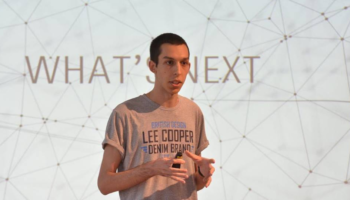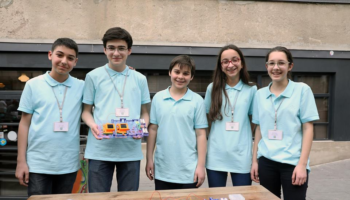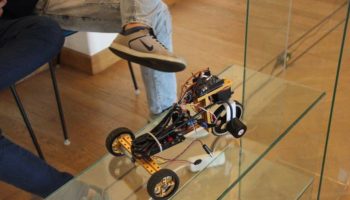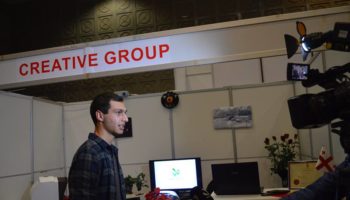19-year-old Georgian student – Anano Mchedlishvili will work on degradation of environmental pollutants using microorganisms. She is the third-year student of the Faculty of Exact and Natural Sciences at Tbilisi State University, where she studies ecology.
Anano Mchedlishvili is especially interested in botany and she has decided to start her volunteer activities in the Botanical Garden. “In this period, I gained practical knowledge in addition to the theoretical knowledge gained at the university. I learned more about tropical plant care and reproduction. In parallel to the care of plants, you monitor them and it is very interesting. Work in the Botanic Garden has brought me closer to my future profession, ” Anano Mchedlishvili said.
Most of all, the Georgian student is concerned over the current ecological situation in Georgia. “”Environmental protection is still a secondary problem in Georgia. Nature is damaged most of all due to the predatory use of natural resources. Currently, it is planned to conduct gold mining works on the territory of “Bneli Khevi” (black ravine) mine. Deforestation is undergoing in a large territory of the country and Fitareti Monastery, which is unique in Georgia with its frescoes, architecture and decorations, is under threat. Improvement of ecological conditions requires the whole ecological thinking of the whole society and we should try to work in this regard, “ – Anano Mchedlishvili said.
Anano Mchedlishvili is able to continue her future activity in several directions, including algology – the branch of biology concerned with the study of algae. It’s notable that nowadays, we do not have a relevant specialist in Georgia.
“Algae is quite widely used. Besides the fact that some of them are used as food, fertilizer, iodine, in the textile industry, etc., they are the main producers of organic substances in the water basins. For example, chlorella, a single –celled fresh water algae, almost completely absorbs the substances released by humans and animals. Thus, use of microorganisms in bioremediation (bioremediation involves degradation of environmental pollutants by microorganisms) causes degradation of many organic pollutants. The algae “Portieria Hornemannii” can even degrade such a toxic substance like a trinitrotoluene. Algae has not yet been studied fundamentally and this also boosts my interest,” – the Georgian student said.
According to Anano Mchedlishvili, on the background of the construction of nuclear power plants the need for radiation ecology grows rapidly. It requires a high level of nuclear physics knowledge. The student says that she finds it difficult to make a final decision yet. Until then, she is an executive assistant to director at the consulting company “Gergili” ltd.
The 19-year-old Georgian student tries to use the years of studying at the university fruitfully in order to overcome challenges in her own field.
Author: Tamar Devdariani
Translation: Tamar Tabatadze
The Hall of Young Scientists & Analysts – “Doctrina







